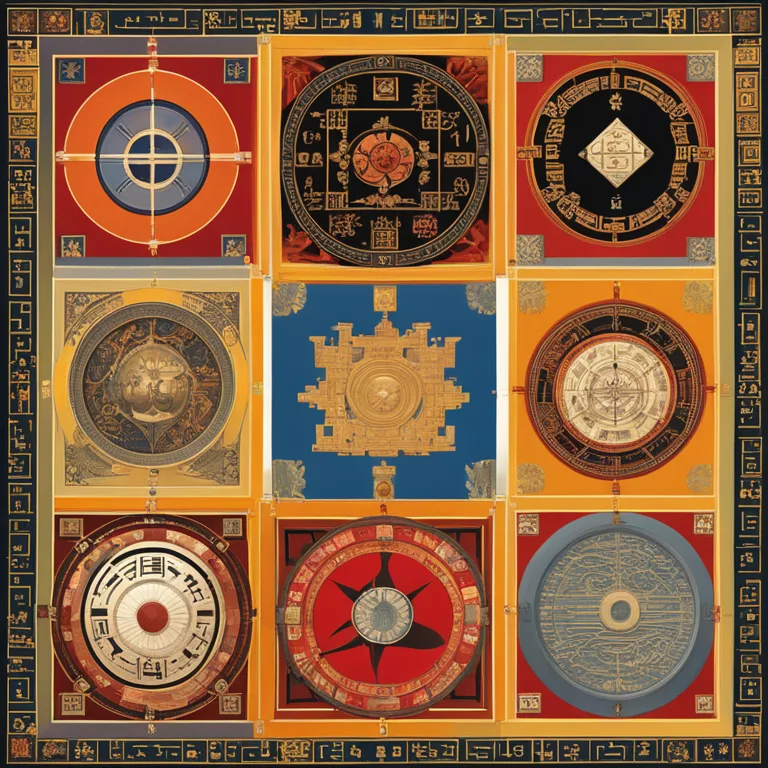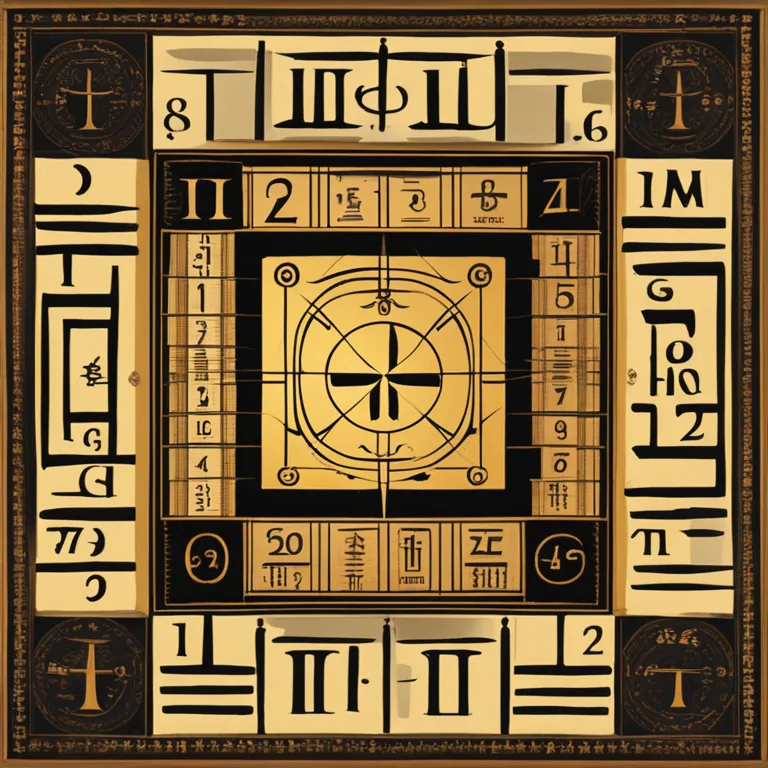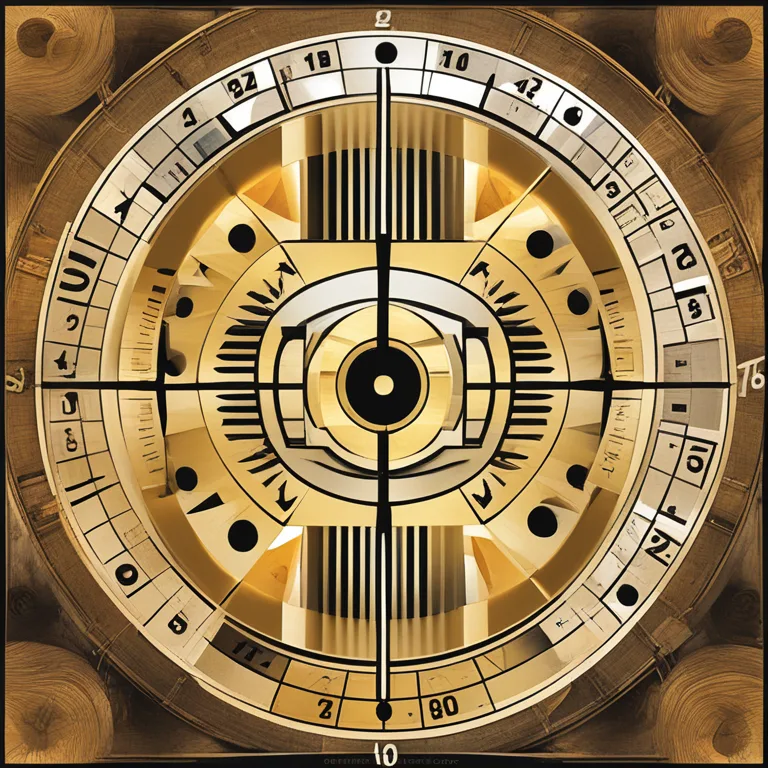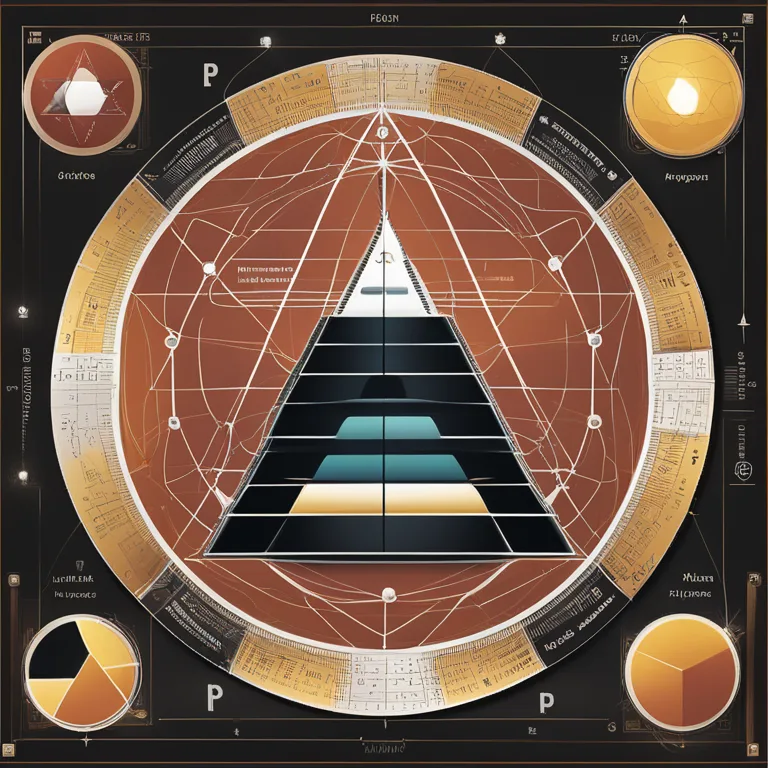
The Origins of Numerology
Tracing the Roots and Founding Minds Behind Numerology
article by Sofia Ferguson
The Ancient Roots of Numerology
Numerology, the mystical art of interpreting numbers' significance, stands as a testament to humankind's quest for understanding the universe through patterns and symbols. This ancient practice, whose inception cannot be pinpointed to a single individual or culture, threads back to the earliest civilizations, including the Egyptians, Babylonians, and Greeks, who all recognized numbers' potent and symbolic nature. Pythagoras, a Greek philosopher and mathematician from the 6th century BC, is often erroneously credited as the 'father of numerology'. However, the essence of numerology is far more ancient, its tendrils intertwining with the dawn of written numbers and linguistic development itself.

Pythagoras' Influence and Misconceptions
Although not the true inventor of numerology, Pythagoras cast a significant shadow across its history. His belief in numbers as the ultimate principle of the universe infused numerological practices with philosophical depth. Pythagoreanism, his school of thought, delved into the belief that numbers and numerical relationships have mystical and divine meanings. But the Pythagorean connection to what many now refer to as numerology is a conflation of his mathematical contributions with later esoteric interpretations, rather than any established numerological system he devised.

The Evolution of Numerological Thought
As civilizations evolved, so did numerological systems, each absorbing cultural, astronomical, and spiritual wisdom from their predecessors. The ancient Chinese practice of Feng Shui includes numerology, while Jewish Kabbalah's mystical interpretations acknowledge the numerical significance within the Hebrew language. Additionally, Chaldean numerology, which originated in Babylon, focuses on the vibrations and energies of numbers. Over time, these rich heritage threads have woven into the tapestry of contemporary numerology.

Modern Numerology and Contemporary Figures
The term 'numerology' was not in prevalent use until the 20th century when L. Dow Balliett, along with several contemporaries, started publishing their ideas. They blended Pythagorean philosophy with personal observations to create the framework for the modern Western numerology system. Other key figures, such as Dr. Julia Seton, were instrumental in shaping and popularizing the movement, which saw a surge in public interest and has since continued to evolve with contributions from psychics, spiritualists, and authors.

Numerology's Place in the Digital Age
Today, numerology adapts to the modern aesthetics of the digital age, with algorithms and online calculators making personalized interpretations widely accessible. New perspectives emerge as these ancient practices meet technology-driven analytics. Notably, the resurgence in public interest towards personal well-being and self-discovery has positioned numerology alongside other esoteric sciences, as a tool for insight, reflection, and guidance.
The Universal Language of Numbers
Undoubtedly, numerology's charm is its universal application. Unlike language barriers that can separate ideologies, numbers are a universal constant. The fascination with their potential meanings transcends cultures, speaking to a collective desire to find pattern and purpose in the fabric of our existence. This is a key to understanding numerology's enduring presence and its seamless integration into various cultural philosophies around the globe.
Published: 12/21/2023
Modified: 12/21/2023
More predictions
Come back here soon to learn more about yourself and your future


Astrological Guide To Friendship
Discover which zodiac signs make the best friends according to astrology, and find your most compatible astrological buddies.


Zodiac Friendship Compatibility Chart
Discover how your star sign aligns with others for platonic harmony using our Zodiac Friendship Compatibility Chart.


Scorpio Compatibility Match Guide
Find out which zodiac signs form the perfect match with Scorpio in love, friendship, and work.